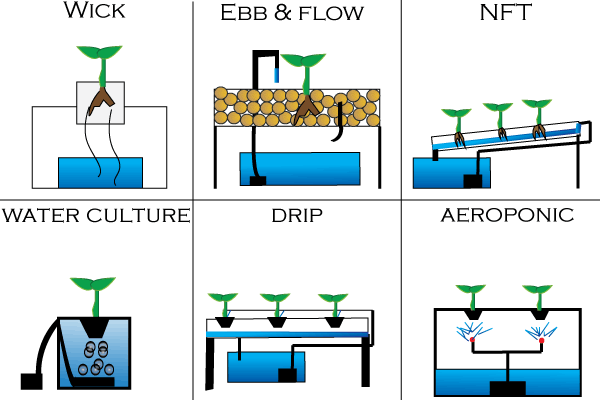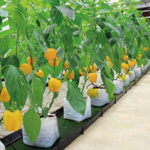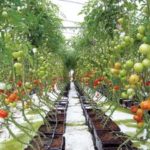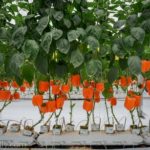Hydroponics: Growing plants without Soil: a Brief History
Hydroponics is a subset of hydro-culture, the method of growing plants without soil, using mineral nutrient solutions in a water solvent.
 The earliest published work on growing terrestrial plants without soil was the 1627 book Sylva Sylvarum or A Natural History by Francis Bacon, printed a year after his death. Water culture became a popular research technique after that. In 1699, John Woodward published his water culture experiments with spearmint.
The earliest published work on growing terrestrial plants without soil was the 1627 book Sylva Sylvarum or A Natural History by Francis Bacon, printed a year after his death. Water culture became a popular research technique after that. In 1699, John Woodward published his water culture experiments with spearmint.
In 1929, William Frederick Gericke of the University of California at Berkeley began publicly promoting that solution culture be used for agricultural crop production. Gericke created a sensation by growing tomato vines twenty-five feet (7.6 metres) high in his back yard in mineral nutrient solutions rather than soil.
He first termed it aquaculture but later found that aquaculture was already applied to culture of aquatic organisms. He introduced the term hydroponics, water culture, in 1937, Hydroponics is derived from neologism υδρωπονικά, constructed in analogy to γεωπονικά, geoponica, that which concerns agriculture, replacing, γεω-, earth, with ὑδρο-, water.
What is Hydroponics?
Hydroponics, by definition, is a method of growing plants in a solution culture, which is water based nutrient rich solution. Hydroponics does not use soil, instead the root system is supported using an inert medium such as perlite, rockwool, clay pellets, peat moss, coco peat, or vermiculite. The basic premise behind hydroponics is to allow the plants roots to come in direct contact with the nutrient solution, while also having access to oxygen, which is essential for proper growth.
Key Features
- Space Savings
- Water Saving
- No Weeding Necessary
- Less Pests and Diseases
- Double-Headed Time Savings due Fast growth
Advantages of Hydroponics
Growing with hydroponics comes with many advantages, the biggest of which is a greatly increased rate of growth in your plants. With the proper setup, your plants will mature up to 25% faster and produce up to 30% more than the same plants grown in soil.
Your plants will grow bigger and faster because they will not have to work as hard to obtain nutrients. Even a small root system will provide the plant exactly what it needs, so the plant will focus more on growing upstairs instead of expanding the root system downstairs.
All of this is possible through careful control of your nutrient solution and pH levels. A hydroponic system will also use less water than soil based plants because the system is enclosed, which results in less evaporation. Believe it or not, hydroponics is better for the environment because it reduces waste and pollution from soil runoff.
Disadvantages of Hydroponics
Despite the fact that a hydroponics system has so many advantages, there are actually a few disadvantages as well. The biggest factor for most people is that a quality hydroponics system of any size will cost more than its soil counterpart. Then again, dirt isn’t exactly expensive and you get what you pay for.
A large scale hydroponics system can take a lot of time to setup if you aren’t the most experienced grower. Plus, managing your hydroponics system will take a lot of time as well. You will have to monitor and balance your pH and nutrient levels on a daily basis.
The greatest risk with a hydroponics system is that something like a pump failure can kill off your plants within hours depending on the size of your system. They can die quickly because the growing medium can’t store water like soil can, so the plants are dependent on a fresh supply of water.
Why Choose Hydroponics?
Hydroponics is an excellent choice for all types of growers. It is a great choice because it gives you the ability to meticulously control the variables that effect how well your plants grow. A fine tuned hydroponic system can easily surpass a soil based system in plant quality and amount of produce yielded.
If you want to grow the biggest, juiciest, yummiest plants you can possible imagine, then hydroponics is the right choice for you. It may seem intimidating at first with all the equipment and work involved, but it will all seem simple enough once you get the hang of the basics. Start small, keep it simple, and your hydroponic system will never cease to amaze! Read More Hydroponics in our next articles, we will cover as many topics as possible.



